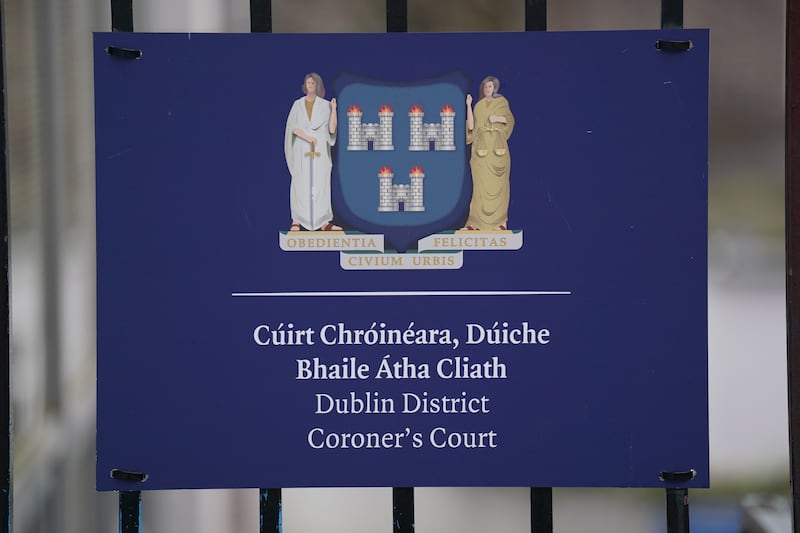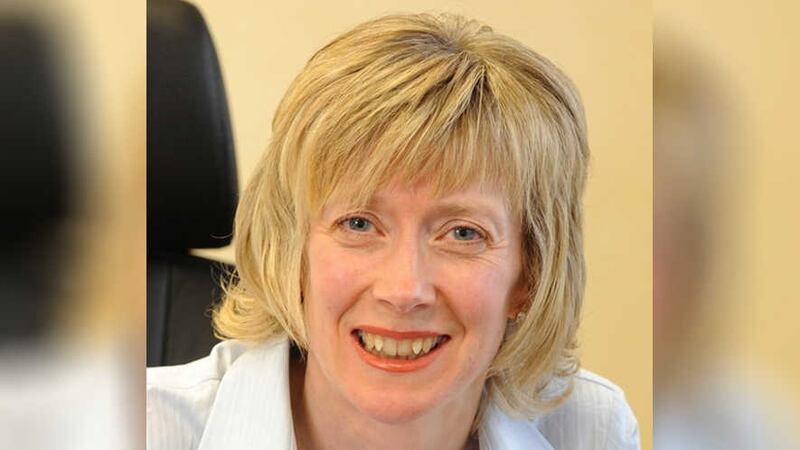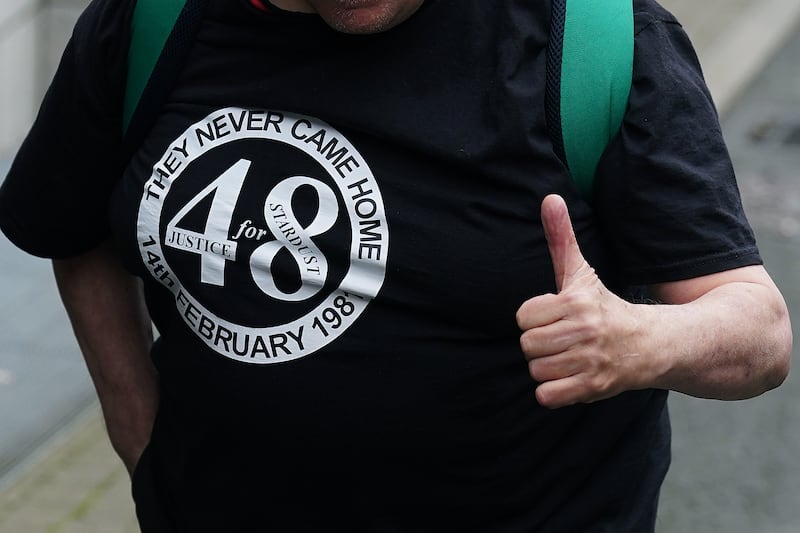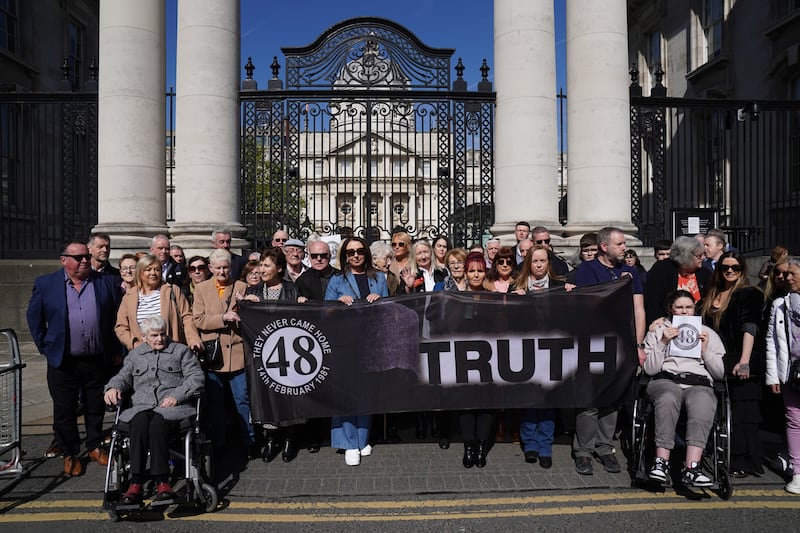The jury in the Stardust inquests are continuing their deliberations into the deaths of 48 people.
It is the seventh day the seven women and five men are considering their verdicts.
The jury have been deliberating for around a total of 24 hours since last Wednesday.
The inquests into the deaths of 48 people after a fire in Artane, north Dublin, began in April last year and have heard evidence from 373 people.

The fire broke out in the early hours of Valentine’s Day in 1981.
The new inquests, which are the longest held in Ireland, are closer to completion following months of evidence.
On Wednesday afternoon, the jury put three questions to the coroner for clarification.
The first was in relation to a questionnaire about the circumstances of the fire, which the jury is to complete as part of their deliberations.
The jury asked the coroner about the definition of standards that applied at the time of the Stardust disaster, and whether they have to go by the norms of the time or by codified laws, regulations and bylaws.
Coroner Dr Myra Cullinane told the jury on Thursday they have to have regard to the laws and regulations at the time of the fire.
“That’s the answer in the main to the question – to have regard to legal provisions,” she said.
“If you’re considering matters where there were no standards in place at the time of the fire, you can move to consider norms and behaviours, if that proves to be the case.
“Ask yourself in so doing, was the behaviour the approved practice, or did that behaviour have obvious inherent risks.”
She told the jury they will be guided by the laws and bylaws that applied at the time, or to use approved practices.
The jury also asked that, when answering the yes-no questions as set out in the questionnaire, whether a “yes” answer implied failure, breach or wrongdoing.
Dr Cullinane reminded the jury that it is answering factual questions.
“You are not permitted in law to attach failure or breach of any law or wrongdoing to any person identified or identifiable,” she added.
“The questionnaire is devised in such a way to comply with the law in that regard.
“Simply, if you answer yes, you are not implying failure on behalf of any person because that it is not permitted.”
She also told the jury to consider whether their answers to the questionnaire fulfils the legal test on the various verdicts available to them.
An original inquest in 1982 lasted just five days and recorded the cause of deaths in accordance with medical evidence, with no reference to the circumstances or the cause of the fire.
After a long campaign by the victims’ families, in 2019 then-attorney general Seamus Woulfe directed that new inquests should take place.









